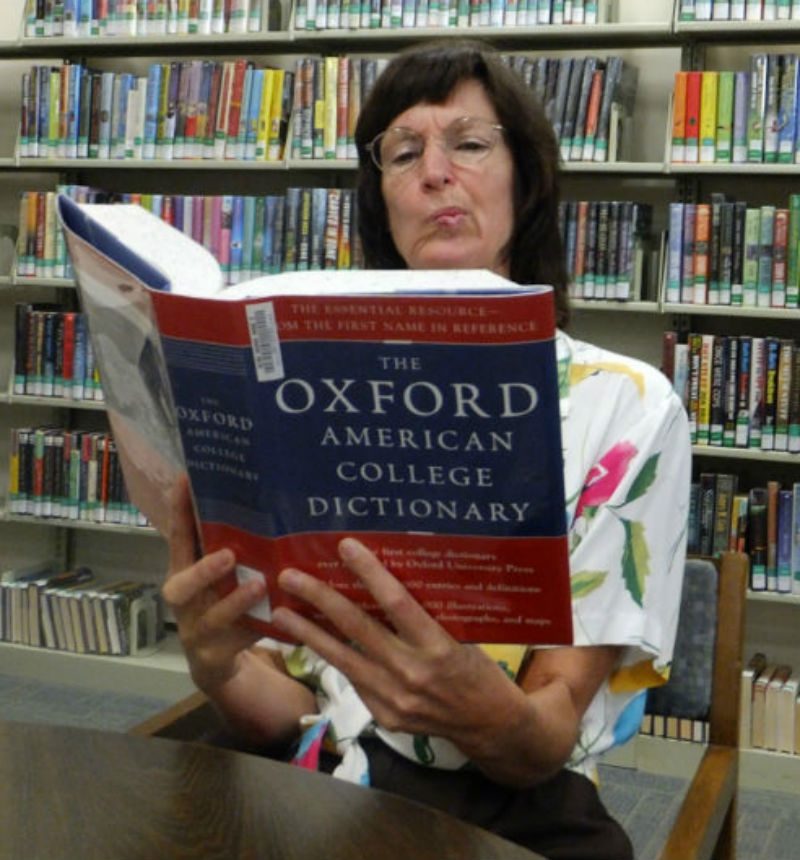We are everywhere! True or False?
When I was in my thirties, I got embroiled in a cyber-argument with someone on a gay bulletin board about her self-definition as a lesbian. I was a newly minted lesbian myself, and I’d gone through a lot in coming out (falling in love with a woman who was not available; telling my parents, siblings, and friends about my new orientation; and being physically attacked by my male fiancée when I broke up with him). So I was self-righteously indignant that this other woman, whom I’ll call T., dared to define herself as a lesbian when she was still (horrors!) married to a man.
I never met T. but we exchanged some heartfelt, unpleasant emails. At one point she cited the cliché “We are everywhere” to support her claim to dykehood, and I was furious. I restrained myself from snapping back, “We are a lot of places, but we are not in heterosexual marriages, and you are not one of us.” What a sense of superiority I clung to, and what a jerk I was.
Last month, at age 55, I met a woman at a lesbian conference who mentioned, after we’d been talking for an hour or so, that she is not in a lesbian relationship because she’s married to a man. For reasons that had little to do with her sexual orientation, but a lot to do with her integrity, she is staying married to that man, at the same time that she’s exploring her “lesbian” identity at places like that conference. I didn’t cringe or even consider criticizing her. In fact, I was reminded of my own coming-out, when I felt stuck in a long-term relationship with a man whom I knew that I shouldn’t marry. I got out, but it took me about six months to do it and a lot of courage.The woman I met at the conference, too, will do what’s right for her.
I got out of my het relationship calling myself “bisexual,” and only after I finally secured a girlfriend did I start applying the L-word to myself. Then I defined “lesbian” as a woman who has a romantic relationship with another woman. For me in my thirties, it didn’t count if I just wanted to have such a relationship: that didn’t confer real lesbian status. I was a lesbian wannabe, I thought, until I managed to get a girlfriend.
That narrow thinking led to my being in a relationship with another woman (I’ll call her S.) who also was eager, for reasons of self-definition, to be with a woman. I don’t think it was a relationship that would have happened organically, without both of our needs to act on our lesbian intentions. She and I had little in common except sexual attraction and a desire to prove that we were real lesbians. It wasn’t the worst relationship of my life, but I wish I’d been less anxious to earn my lesbian credentials and had waited to meet someone more suitable.
I was in one committed relationship (with one woman) for most of the intervening twenty years, and was proud to call myself lesbian, but at one point I went from the term ‘lesbian’ to ‘bi,’ when I went back to an old boyfriend. This seems a little specious: am I only bisexual when I’m with a man?
What I’ve learnt in more than two decades is that I can’t define anyone else’s orientation, and my own lesbian identity seems less rigid than it once was. Even without such iron-clad understanding of the term, though, I’m proud to be a lesbian.
I wonder if other LLLs, and younger lesbians too, feel the need even to define the term “lesbian” anymore. Are you a lesbian if you sleep with a guy once in a lifetime, or once a week? Can a lesbian be married to a man? I’d love to know how other women have defined the word that unites us, and how we are defining it now.
